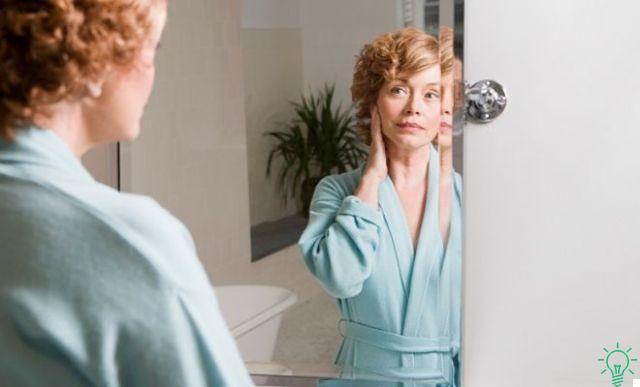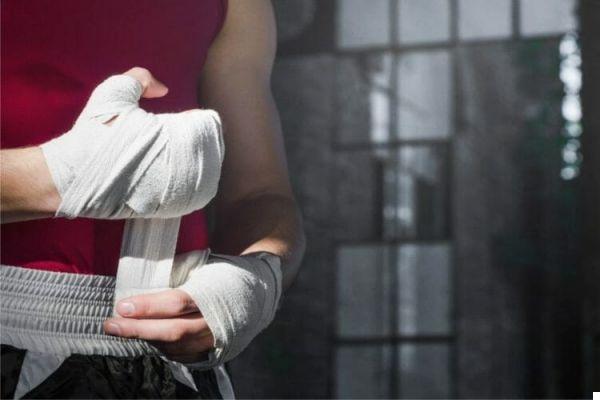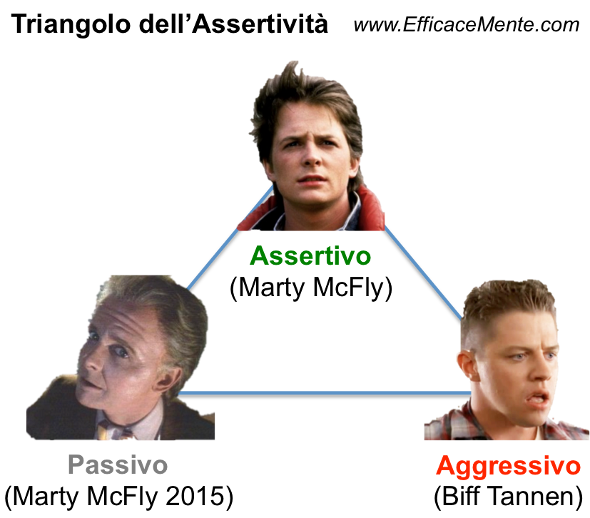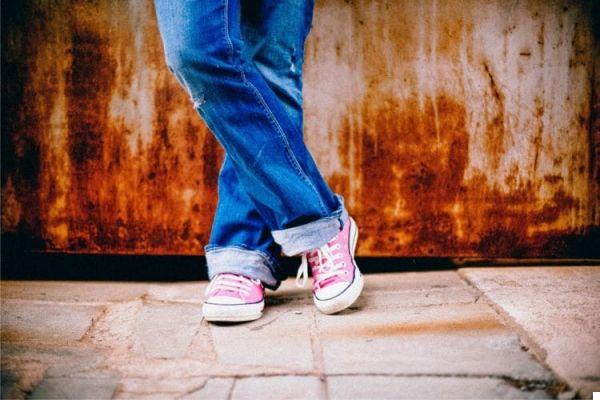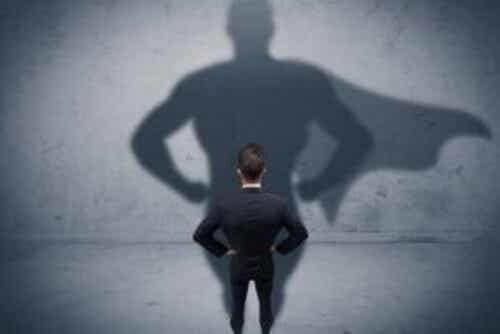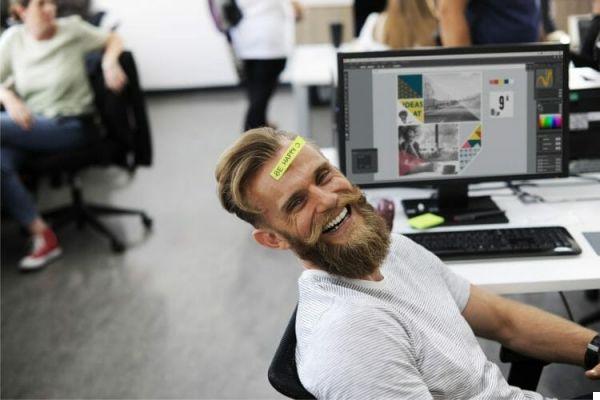Developing a healthy sense of self-efficacy is one of the secret ingredients for facing the toughest challenges in our lives and achieving our most ambitious goals. But what is this self-efficacy theorized by the psychologist Albert Bandura and, above all, how can we increase it?

"Whether you think you can do it or not, you will still be right."
Henry Ford.
There is a saying that readers of Self-esteem step by step they know very well, but which is almost entirely unknown to the remaining GetPersonalGrowth audience.
I'm talking aboutself-efficacy, that is to say…
"The set of beliefs that an individual has about his ability to plan and execute the actions necessary to achieve a certain goal."
Let me guess: are you more confused than before ?!
If the official definition of prof. Bandura, creator of the self-efficacy theory, has you a bit dazed, follow me! In this article we will find out:
- What is self-efficacy (explained in a few simple words) and why it is so important to us.
- La key difference between self-efficacy and self-esteem.
- I 5 factors that influence our self-efficacy.
- As measure your current level of self-efficacy (and how to manage to increase it).
Let's start with a slightly more digestible definition of self-efficacy.
A simple definition of self-efficacy

Imagine this scene ...
There are two students, Laura and Anna, who have to face a math exam.
Laura and Anna have the same intelligence, the same ability in science subjects, for this exam they even studied together and perdindirindina also wear the same shoes!
In short, Laura and Anna are practically twins… there is only one aspect that differentiates them.
Laura is confident she can take this exam, because he strongly believes in his own abilities as a student; Anna, on the other hand, is not at all sure that she can face this test.
In your opinion, which of the two will be more likely to pass the math test brilliantly? The confident Laura or the not very confident Anna?
Yes, all things being equal, whether or not you believe in your own abilities can make a huge difference.
... and this is where theself-efficacy.
"The sense of self-efficacy is in fact the degree of confidence we have in our abilities, specifically in our ability to face the challenges that await us and successfully complete certain tasks".
Oh well Andre ', in practice' being self-efficacy is nothing more than a synonym for self-esteem, invented by some bored professorone!
Not really: there is indeed a key difference between self-efficacy e esteem.
Self-efficacy and self-esteem: two very different (but complementary) "Cars"

As seen a few lines ago, theself-efficacy indicates how much we believe in our abilities to face challenging situations.
On the contrary, theself-esteem indicates how much we value ourselves, which is the level of respect and love we have towards us.
I'll give you an example that I'm sure will help you understand even better the difference between these two very important psychological concepts.
Get a perfectionist: do you know anyone? Maybe someone very close to you ?! :-D
Well, if you are also part of the perfection freak club, this example will be even clearer to you.
Who is affected by chronic perfectionism generally has a high level of self-efficacy, but low self-esteem. In short, Mr. Perfettino knows he has the skills to face life's challenges, but whatever results he gets, he will tend to be overly critical of himself.
Sound familiar to you? ;-)
Having clarified this important difference, it is necessary to underline that although self-efficacy and self-esteem are different concepts, they are closely related to each other.
By increasing our self-efficacy, in fact, we are more likely to pass the "tests" of life (remember the story of Anna and Laura?); overcoming these tests the confidence in ourselves increases, in a virtuous circle in which self-efficacy and self-esteem support each other.
Yeah, but to start, how do we increase this blessed one self-efficacy?!
The 5 factors that influence our self-efficacy

At this point in the article, you are probably wondering how we build our self-efficacy. In short, why do some people seem to have it packed and others seem to have forgotten it in the cellar? What is it that affects our self-efficacy and ultimately how can we increase it?
Second Albert Bandura, who first theorized the concept of self-efficacy, are 4 the factors which can increase it (subsequent studies have also identified a fifth). But let's start from the 4 original factors:
1. The experience of success
Getting a victory is the quickest and most painless way to gain more confidence in our means. What many do not know, however, is that the small victories repeated over time they are much more functional to our sense of self-efficacy than the big cover hits.
Moral of the story: define daily / weekly micro-goals and focus all your attention and energy on them.
This will ensure that your self-efficacy is strengthened.
Ps. on the topic "micro-objectives”I suggest you watch this video of the GetPersonalGrowth Youtube channel: it will help you avoid the mistake that 99% of people make when setting a goal (well, the preview of the video came to me with a tipsy face: it happens!).
But let's see the second element that influences our self-efficacy ...
2. The vicarious experience
With this abstruse term Bandura emphasizes how observing other people who are able to carry out a certain task successfully can consequently increase our self-efficacy.
I try to explain myself better. Have you ever thought: "man, if he can do it, why shouldn't I do it too?".
Unfortunately who has one low self-esteem when confronted with successful people, he often develops a sense of envy or helplessness rather than self-efficacy.
The main mistake in these cases lies in the choice of reference models. For example, if you are out of shape right now and you compare yourself with a supermodel, guess what happens to your sense of self-efficacy? Yeah, go get blessed!
Here's if you want to use thevicarious experience to strengthen your self-efficacy you must learn to choose better models: make a list of 5 people who have achieved the goals you want to achieve, starting from a condition similar to yours: contact them, interview them, find out what actions they have implemented and take inspiration from them as the best of artists.
3. Verbal persuasion

Do you remember when we talked about the fear of the judgment of others?
Fortunately, we are not only surrounded by cactus heads and it is often the people we love most (parents, friends, mentors, etc.) who remind us that we have all the necessary skills to face our challenges.
If you want to improve yours sense of self-efficacy learn to surround yourself with people who are supportive, who continually encourage you to be the best version of yourself, who constantly remind you that with the right commitment you can face any challenge.
4. Physiological and emotional states
If every time you are faced with a challenging situation you are tense, agitated or in a bad mood it will be increasingly difficult for you to want to repeat that same experience in the future!
As human beings it is natural for us chasing after pleasure and avoiding pain.
What are we trying to do then? Simple, we do everything to repress the discomfort associated with these unpleasant physiological and emotional states by avoiding certain situations.
On the contrary, those with high self-efficacy have learned to interpret those same feelings differently (and in a more constructive way). For example, he learned to see theagitation as energy and nervousness as attention.
This change of "interpretation" in the face of the same physiological and emotional states experienced by all the others, can be incredibly helpful in our performances.
Yes, but how can we change perspective?
To transform physiological and emotional states from enemies to allies, one of the key aspects we need to work on is ours inner dialogue. Yes, that's right: the inner little voice that constantly buzzes in our heads (if you want to deepen the theme of "inner dialogue" and how to change it, I refer you to this article).
As mentioned, in addition to the 4 original factors identified by Bandura, subsequent studies have revealed a fifth factor capable of influencing our self-efficacy ...
5. The imagined experiences
According to psychologist James Maddux, the fifth element that impacts our sense of self-efficacy is the imagined experiences.
No no, I'm not talking about mental saws what do we do from morning to evening! God, even those affect our self-efficacy ... for the worse!
The imagined experiences that help increase confidence in our abilities are unique views in which we see ourselves acting effectively in the most challenging situations.
As I have often repeated not all visualization techniques they work: some fall into the category "fuffosa fuffò fuffò", others instead, those to which Maddux refers and that I explain here , they can really contribute to our sense of self-efficacy and, in general, to the achievement of our goals. Seeing is believing.
Well, so far we have seen what self-efficacy is, how it differs from self-esteem and what are the 4 + 1 factors that influence it. But I bet what you really care about is knowing How much self-efficacy is there? and how you can increase it in case you run out of it.
In the final part of this article we will see just how to measure your current level of self-efficacy and based on the results you will get I will give you specific advice for your situation.









